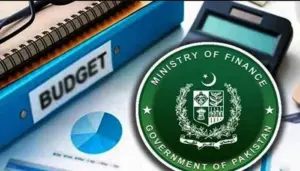Power distribution companies made excessively billing to 4.6 m consumers

Instalments in electricity bills will be once a year
ISLAMABAD, Dec, 5,2023: An inquiry committee of the National Power Regulatory Authority (Nepra) has uncovered alarming details of power distribution companies (discos) excessively billing electricity to 44,62065 (4.6 million plus) consumers for over 30 days throughout the country.
Hyderabad Electric Supply Company (HESCO) sent bills for over 30 days to 5,21,624 consumers in July. In August, HESCO sent overdue bills to 2,8,481 customers.
Meanwhile, Sukkur Electric Power Company (SEPCO) sent overdue bills to 325,764 customers in August, including 65,675 bills with incorrect images. In July, SEPCO had sent bills with wrong images to 77 thousand 869 customers.
The Multan Electric Power Company (MEPCO) topped the list, sending bills for more than 30 days to over 57 lakh consumers in July. Subsequently, in August, MEPCO sent overdue bills to 22,65,271 customers, including 1,38,723 customers without photos, according to the committee’s findings.
Gujranwala Electric Power Company (GEPCO) was also implicated, billing 463,360 consumers for over 30 days in July. In August, GEPCO extended this to 1.192,62 customers.
Faisalabad Electric Supply Company (FESCO) and Lahore Electric Supply Company (LESCO) were not exempt, with FESCO billing 844,58 consumers for over a month in August. LESCO sent bills for more than 30 days to 685,588 customers in July, including 1,23,440 bills without photos. In August, LESCO overbilled 650,460 customers, with 126,000 customers receiving bills without pictures.
Quetta Electric Supply Company (QESCO) overbilled 116,000 customers in July, sending bills without pictures.
The Nepra inquiry committee’s findings raise serious concerns about the accuracy and transparency of billing practices by these power companies, emphasizing the need for corrective measures and accountability in the electricity billing system across the country. Further developments in response to the inquiry are anticipated.





